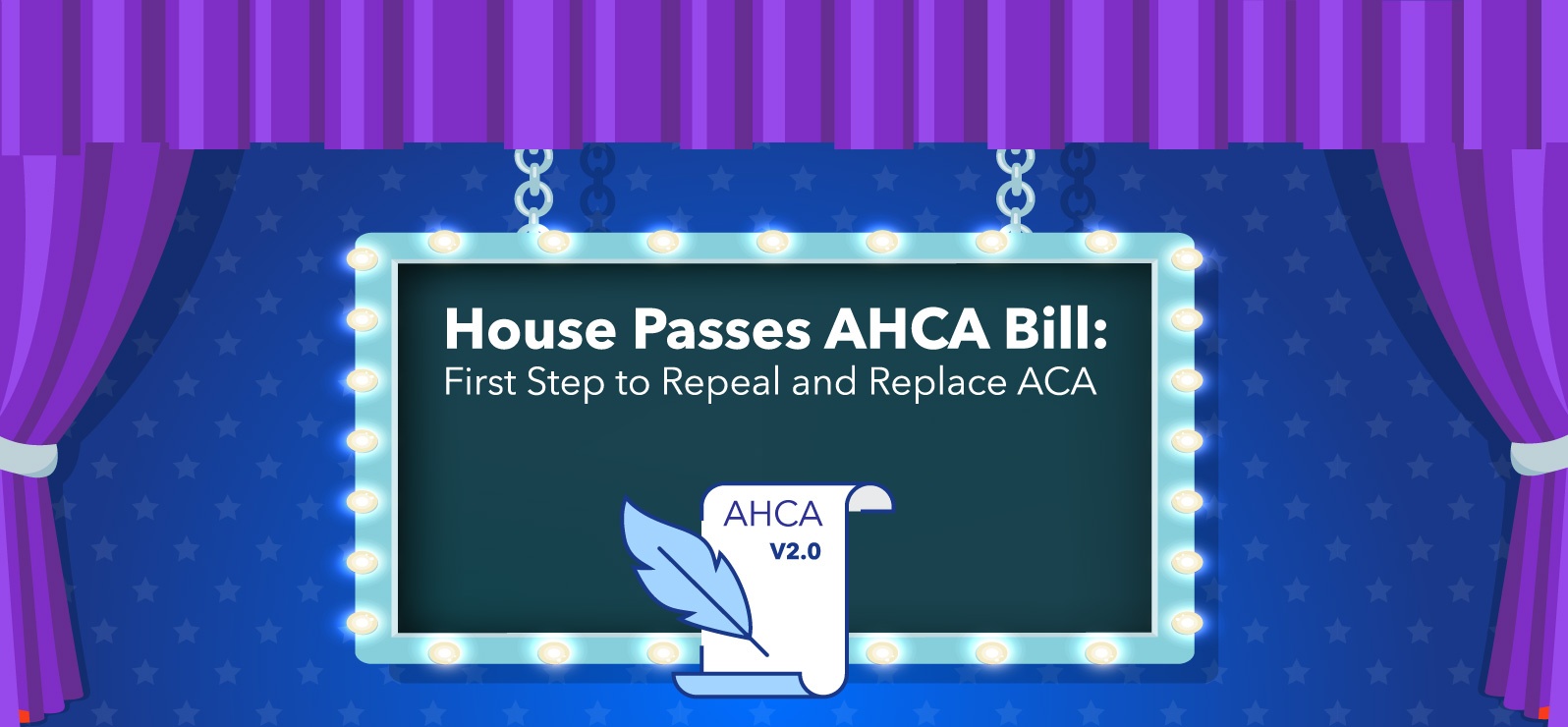
May 5, 2017
What Happened:
- On May 4, 2017, the U.S. House of Representatives passed House Resolution 1628, a reconciliation bill aimed at "repealing and replacing" the ACA
- The bill will move to the Senate where amendments are expected to be made prior to voting on the bill
- It is unknown at this time if the American Health Care Act (AHCA) can pass the Senate, or what might be changed in order to earn votes to pass the bill
Major Changes that Impact Employers:
- Repeals “Employer Mandate” penalties
- Pushes out Cadillac tax to 2025
- Permits states to waive essential health benefits requirements
- Removes $2,500 limit on FSAs
- Allows OTC drug expenses to, once again, be eligible under FSA plans
- Increases maximum HSA contributions and allows both spouses to make catchup contributions
- Allows health insurance offered in individual and small group market to vary rates by 5:1 (instead of 3:1 under the ACA)
- Repeals the small employer health insurance tax credit.
Other Major Changes:
- Repeals “Individual Mandate” penalties
- Repeals the ACA premium tax credit and replaces it with a refundable tax credit based on age and income
- Repeal ACA’s cost sharing subsidies
- Allows states to seek waivers of the requirement to offer Essential Health Benefits
- Allows insurance companies to charge up to 30% more for people with pre-existing conditions IF they have not maintained continuous coverage (in individual and small group market) (based on HIPAA rules of needing creditable coverage for 63 or more days during an applicable 12-month look-back period)
- Permits states to obtain a waiver and underwrite "high risk" policies for individuals who do not maintain continuous coverage
- Reduces funding for Medicaid through restructuring to a block grant system
- Reduces the tax imposed on HSA distributions not used to pay for qualified medical expenses from 20% to 10%
What Supporters Say:
- The new plan will lower costs and give people more freedom in healthcare choices
- Transfers decision making to states because states know best the needs of their citizens
What Critics Say:
- It will leave millions without health coverage
- It will leave millions more with less comprehensive coverage than they need and/or more expensive coverage than they can afford
What Does it Mean for Employers?
- At this point, there is no change to existing law for employers
- While the passage of this bill may signal potential change in the ACA, significant additional steps remain before any change becomes law
- Employers are strongly advised to maintain current ACA compliance
Stay tuned as events progress...



